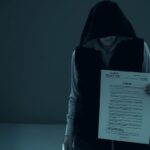Leak of Secret US Military Plans Raises National Security Concerns
The White House confirmed that Trump administration officials accidentally added a journalist to a group chat discussing U.S. military plans involving airstrikes on Houthi rebels. This chat included notable figures such as Vice President JD Vance and Secretary of Defense Pete Hegseth. Following the incident, Democratic legislators demanded investigations into the security breach, raising concerns over handling sensitive military information.
On March 24, 2025, the White House acknowledged that senior officials from the Trump administration mistakenly included a journalist in a group chat concerning U.S. military plans. This incident involved notable figures, including Vice President JD Vance and Secretary of Defense Pete Hegseth, communicating via the Signal app about imminent military actions.
Jeffrey Goldberg, editor-in-chief of The Atlantic, reported his initial skepticism regarding the chat’s authenticity, stating, “I had very strong doubts that this text group was real, because I could not believe that the national-security leadership of the United States would communicate on Signal about imminent war plans.”
Goldberg was added to a chat named “Houthi PC small group,” revealing discussions on airstrikes against Houthi rebels in Yemen. He received early warnings about U.S. strikes set for March 15 and ultimately confirmed the group’s validity upon witnessing the news of the attacks. He subsequently exited the chat, writing, “Having come to this realization, one that seemed nearly impossible only hours before, I removed myself from the Signal group.”
National Security Council spokesman Brian Hughes confirmed the authenticity of the message thread and noted that a review is taking place to understand the unintended addition of Goldberg. In contrast, Secretary Hegseth refuted claims of disclosing war strategies, stating, “Nobody was texting war plans, and that’s all I have to say about that,” while labeling Goldberg as a “deceitful” journalist.
When pressed for comment on the matter, President Trump professed ignorance about the chat’s existence. Subsequently, White House Press Secretary Karoline Leavitt defended Trump’s confidence in his national security team, who included National Security Advisor Mike Waltz, allegedly responsible for adding Goldberg to the discussion.
Screenshots showed Vice President Vance expressing concerns regarding U.S. military responses to the Houthis, stating he despises “bailing Europe out again.” Waltz emphasized America’s unique capability to handle such missions, while Hegseth echoed that he agreed with Vance’s views on European reliance.
Democratic legislators called for inquiries following this breach of national security. Hakeem Jeffries asserted that Congress should investigate to prevent similar occurrences. Pat Ryan emphasized urgency in holding hearings, expressing, “If House Republicans won’t hold a hearing on how this happened IMMEDIATELY, I’ll do it my damn self.” Senator Elizabeth Warren condemned the breach as “blatantly illegal and dangerous beyond belief,” questioning the security of sensitive military communications.
The U.S. military action in Yemen stemmed from rising hostilities involving the Houthis, who aligned with Hamas amidst escalating tensions following attacks in Israel on October 7, 2023. Despite President Biden’s orders for military strikes against them, regional stability remains fragile, with supporting European nations involved in operations against the Iranian-backed group.
This incident involving inadvertent communication regarding U.S. military plans not only highlights potential vulnerabilities in national security protocols but also raises questions about the appropriateness of using informal messaging platforms for such critical discussions. The ensuing calls for investigation from Congressional Democrats indicate a serious concern about safeguarding national security.
Original Source: www.dw.com








Post Comment